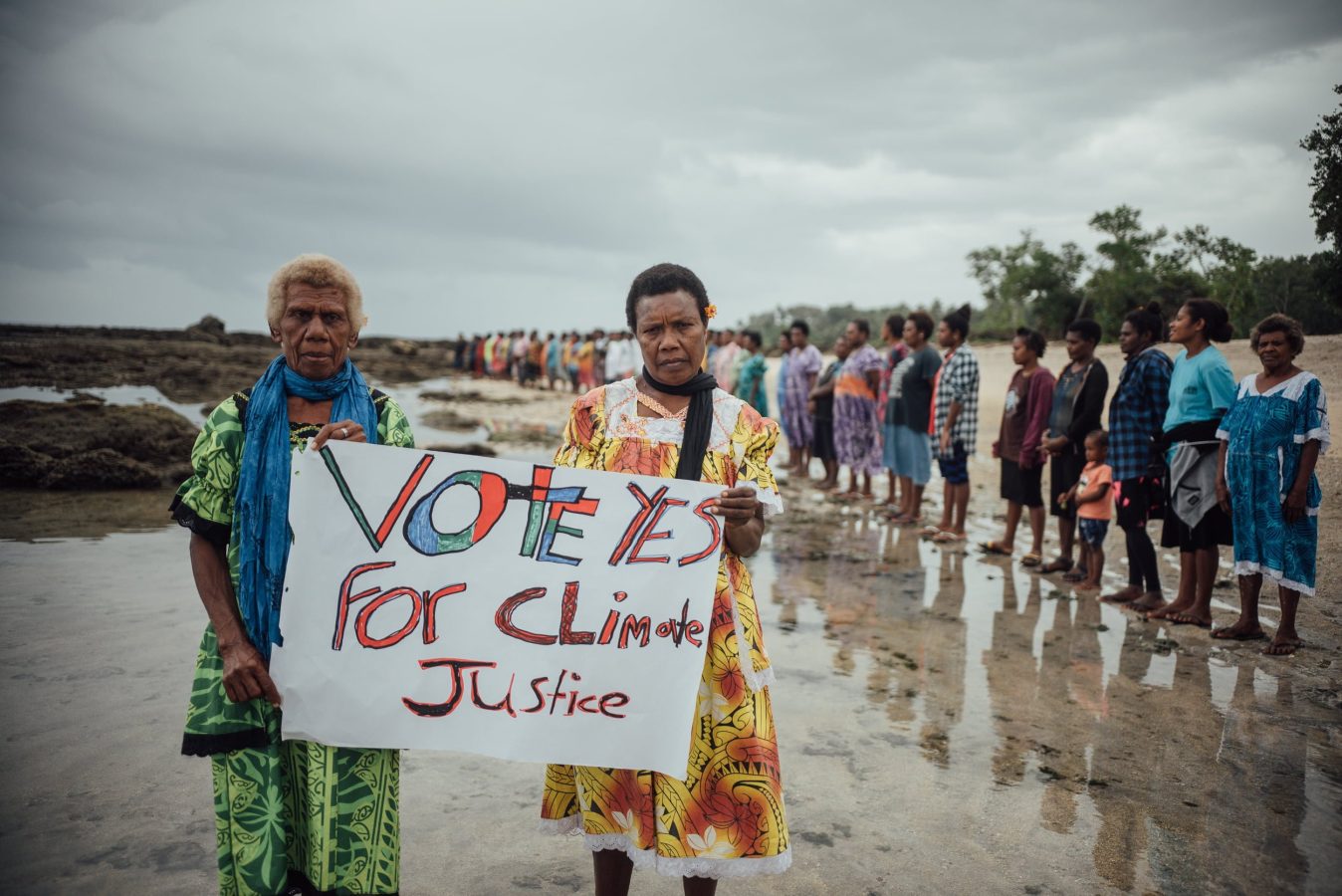NEW YORK 29 MARCH: The historic adoption through consensus at the United Nations General Assembly of a Pacific-led resolution to bring climate change, intergenerational justice and human rights to the International Court of Justice is a global win in tackling the climate emergency.
It is the first step towards clarifying the obligations of countries under existing international law to protect the rights of present and future generations against the adverse effects of climate change.
“The adoption of this resolution shows unequivocal global recognition that without transformational changes now in our approach to tackling climate change we face catastrophic consequences for people and their human rights around the world,” said Amnesty International Australia campaigner Rose Kulak.
“To see Australia and nations around the world standing with Vanuatu and Pacific civil society, who from the frontlines of the climate crisis have brought this campaign to the world’s highest court, signals unprecedented global recognition that the human rights consequences of climate inaction must be addressed.
“Many Pacific Island nations contribute nothing to climate change but suffer the most, where climate change is threatening entire cultures and peoples, including the Torres Strait where Australia already has been found by the United Nations Human Rights Committee to have violated the human rights of a group of islanders through climate inaction.
“We know from the most recent Intergovernmental Panel on Climate Change (IPCC) report marking six years of work by about 700 scientists that up to 3.6 billion people are now highly vulnerable to climate change and at risk of losing their rights to health, food, water, housing, livelihoods and life itself.
“With the adoption of this landmark resolution, people on the frontline of the climate crisis will have an opportunity to be heard at the International Court of Justice which allows civil society to participate in hearings that will inform the court’s advisory opinion.
“As the IPCC warns that time is running out to avoid the worst impacts of climate change, current emissions pledges, including Australia’s inadequate 43 per cent by 2030, have put us on track for a disastrous three degrees of warming.
“It is our hope that a robust advisory opinion from the International Court of Justice on countries’ obligations under international law, and the legal consequences of climate inaction, will push countries to urgently tackle their reliance on the fossil fuels that are driving the climate emergency.
Amnesty International Australia Campaigner Rose Kulak
“We commend the Pacific Islands Students Fighting Climate Change and the Vanuatu government for their incredible work in bringing this resolution to the world’s highest court. There is no time to lose.”
Background
Australia is one of 105 nations that co-sponsored the Pacific-led resolution at its official tabling at the United Nations on 23 March. This support culminated in endorsement by more than 130 countries at the UN General Assembly to take the human rights impact of climate change to the International Court of Justice (ICJ). Amnesty is among more than 1,500 civil society groups across 130 countries who endorsed the campaign.
The ICJ will determine what are the obligations of countries under existing international law to protect current and future generations against the adverse impacts of climate change, and what are the legal consequences under these obligations for harm caused.
The campaign for an ICJ advisory opinion linking climate change and human rights began in 2019 in a university classroom in Vanuatu, before being picked up by the Vanuatu government and put to the UN General Assembly.





